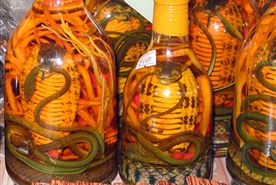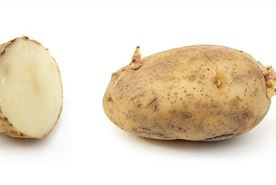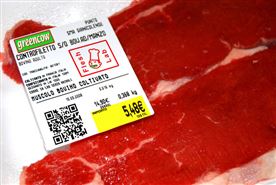Food Science
Verb
make pain or hardship more bearable or less severe
A natural compound found on a variety of fungi produces hallucinogenic effects when ingested and can alleviate depression in cancer patients.
Verb
make dirty or impure
Researchers found toxic chemicals from recycled newspapers had contaminated food sold in many cardboard cartons.
Verb
take away or change the natural qualities of something
Even with a whole venomous snake in the bottle, snake wine is no longer poisonous. Denatured by the ethanol, the venom dissolves in the liquor and is thought to have medicinal benefits.
Adjective
of or relating to study of heredity and the variation of inherited characteristics
A protein-packed 'superspud' has been developed by genetic scientists who believe it could help solve hunger in developing countries.
Adjective
in an artificial environment rather than inside a living organism
We may see in vitro meat in supermarkets sooner than expected, preserving the taste of animal meat as well as the welfare of the animals themselves.
Noun
article of trade whose value is chiefly decorative or comic
Watermelons naturally assume the shape of the receptacle they are stored in. Unfortunately the novelty comes at double the cost of a normally shaped melon.
Noun
lover of or expert on wine
For 8,000 years, the wine grape has had very little sex. This unnatural abstinence threatens to sap the grape’s genetic health and the future pleasure of millions of oenophiles.
Noun
unstated doubt that prevents one's complete acceptance of something
A new study suggests that a cereal box sporting a cartoon character can make children forget their reservations about unhealthful foods.







